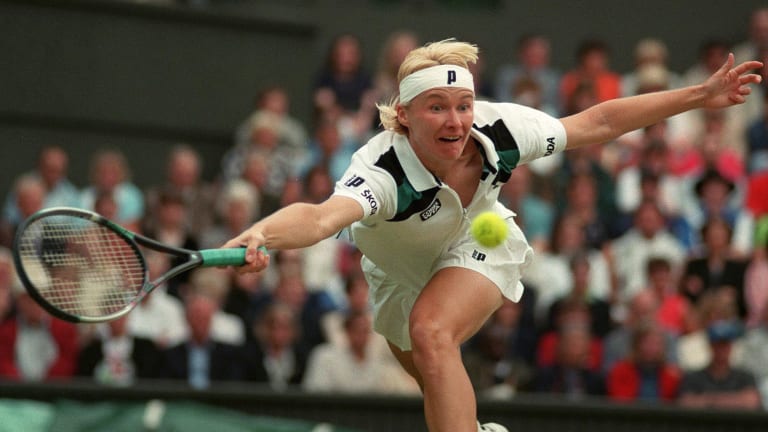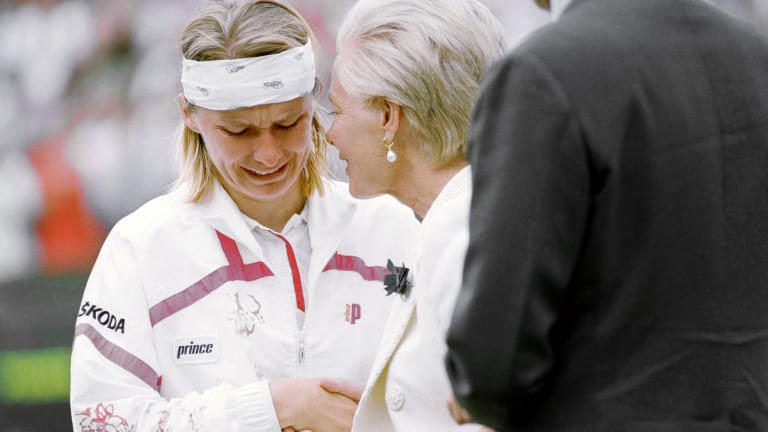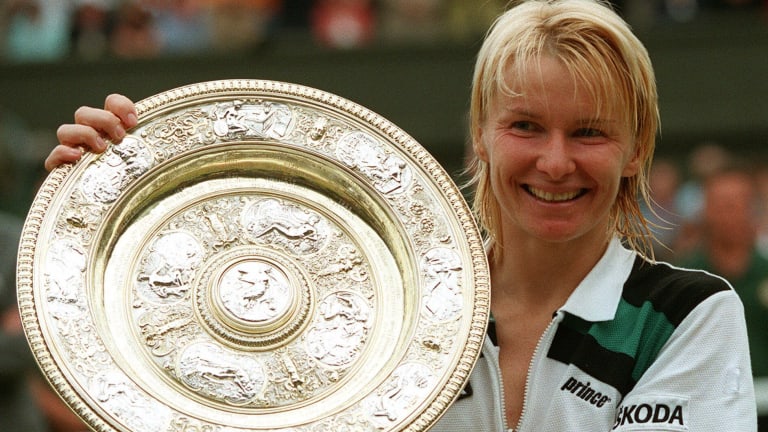Jana Novotna remembered fondly by compatriots, fans and playing peers
Nov 21, 2017Stat of the Day
Taylor Fritz records milestone 300th win of career, first American man born in 1990s to do so
By Apr 27, 2025Social
Alexander Bublik talks gaming, hypes coach’s FIFA skills in Madrid 🎮
By Apr 27, 2025Madrid, Spain
Alexander Zverev wins amid controversy in Madrid
By Apr 27, 2025Rome, Italy
Andy Roddick: Jannik Sinner “has to set the table in different ways” on clay
By Apr 27, 2025Madrid, Spain
Defending Madrid champ Andrey Rublev out to Alexander Bublik
By Apr 27, 2025Madrid, Spain
Aryna Sabalenka shouts out 🇧🇷 Brazilian fans after Madrid comeback
By Apr 27, 2025Your Game
The Official 2025 Mother’s Day Tennis Gear Gift Guide
By Apr 27, 2025Lifestyle
Game, Set, Recharge: Garbiñe Muguruza’s three non-negotiables on a long flight
By Apr 27, 2025Pick of the Day
Madrid Open Betting Preview: Ekaterina Alexandrova vs. Daria Kasatkina
By Apr 27, 2025Jana Novotna remembered fondly by compatriots, fans and playing peers
“When I think of Jana, the word ‘perseverance’ comes to mind,” sa
Published Nov 21, 2017
Advertising

Jana Novotna remembered fondly by compatriots, fans and playing peers
© AP1998
Advertising

Jana Novotna remembered fondly by compatriots, fans and playing peers
© 1993 AP
Advertising

Jana Novotna remembered fondly by compatriots, fans and playing peers
© AP